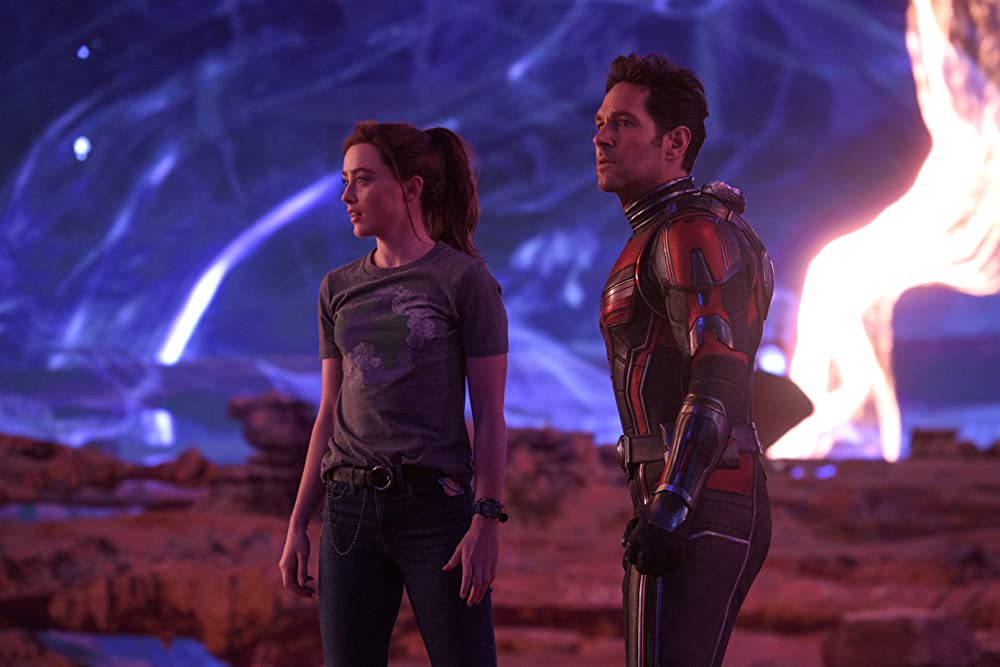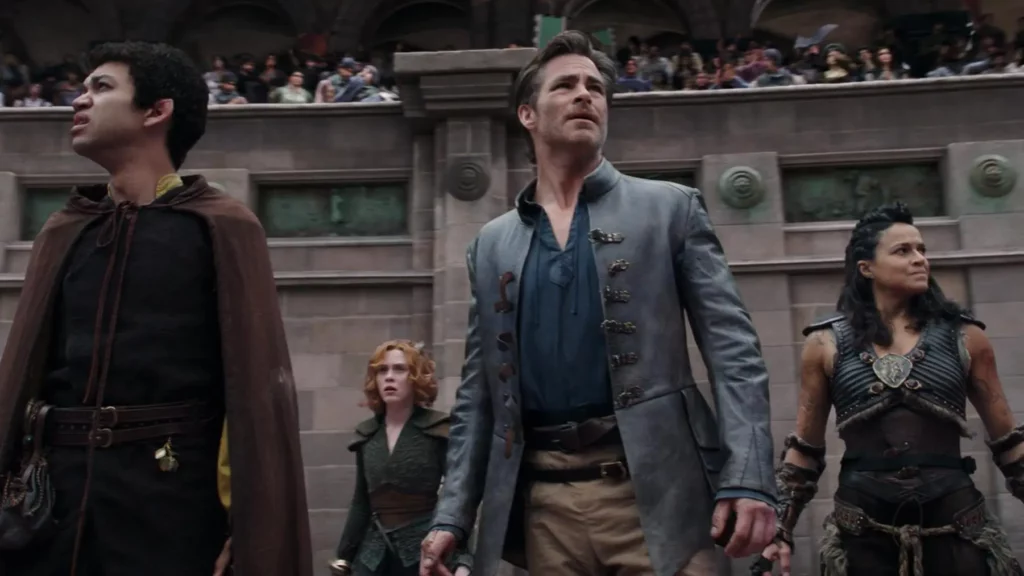Why do critics and audiences often rate films differently? How well is that represented by Rotten Tomatoes? And what can be learned from what film critics say?
Why do critics and audiences rate films differently? That question’s been asked very often regarding film over time, but it seems to have gotten attention particularly in the past few months. Some of the most recent and prominent examples that generated such lovely, not-at-all-vitriolic discussions include Black Adam, Infinity Pool, Ant-Man and the Wasp: Quantumania, and The Super Mario Bros. Movie. The reactions to these films and others have led many to shout that critics are just snooty jerks, that they’re out to get fun popcorn flicks and unconditionally love arthouse films, and that what really matters is what the “regular” moviegoers think. In response, others have shouted that mainstream audiences are just uneducated children who gobble up anything in front of them, and that critics are simply seeing the truth where the lowly viewer can’t.
Obviously, neither of these insulting generalizations are true. But that kind of discourse still continues whenever audiences and critics appear to have such different reactions to films. I’ve grown increasingly irritated by how many times these two groups are pitted against each other by such juvenile mob mentality. But at the same time, it’s impossible to deny that there are differences between how critics and audiences in general rate films. The question, again, is why do those differences exist? What do they say about a film’s merits, especially compared to other films of the same genre or demographic? How does Rotten Tomatoes paint both an accurate and somewhat unreliable picture of critical and audience consensus? And, most importantly, how have our perceptions of these differences been used in both helpful and harmful ways?
WHEN CRITICS RATE FILMS LOWER THAN AUDIENCES

The most commonly debated type of audience-critic disparity I’ve seen is when critics, on average, rate a film lower than audiences. We’ve seen this happen plenty of times with comic book movies, as well as other high-profile releases like The Super Mario Bros. Movie. Is it just because critics really have higher standards? Not quite. By far the biggest factor to consider is that every general audience member is choosing to see any given movie, whereas not every critic is in that position. Critics, with some exception, don’t get to just pick and choose what they review. They cover a whole swath of bigger films either out of obligation or to keep their views up, whether those films look good to them or not. Audiences, meanwhile, usually only see a movie if they think they like it … which means those who have no interest or are outright opposed to said movie are not included in the “audience” consensus.
Let’s take The Super Mario Bros. Movie, for instance. How many people in its audience had little interest or investment in the film as opposed to those who went in excited to see it? Probably very few. Which means those whose tastes brought them in are probably going to have those tastes satisfied, while everyone else has no voice. If you’re a critic, however, that lack of interest usually doesn’t keep you away. Some critics may not be Mario fans, some may not like the trailers’ sense of humor, some may be too put off by the voice cast, etc. The same applies to something like Quantumania. Most people who paid to see that movie are clearly not burnt out by the MCU, but the critical community includes those who are, meaning the proportion of those unlikely to be won over is increased.
Additionally, critics just see more films than most average moviegoers … as in, a lot more. Not just new releases, but hundreds of older classics and obscure gems. It’s their job to cover as much as possible and be cinematically up to speed, after all. But this also means they’ll spot familiar tropes and tricks much more quickly, predict certain outcomes more easily, and likely be more tired of something that comes across as stale. So, what most moviegoers would consider a minor quibble at worst may be much more detrimental to a critic who’s had to put up with it far more often. That doesn’t necessarily make critics too picky or audiences too generous. It just means they’ve had different experiences that inform different tastes.
WHEN CRITICS RATE FILMS HIGHER THAN AUDIENCES

That higher number of films seen by critics is also partially why they’ll often like certain films more than general audiences. Films like I’m Thinking of Ending Things, The Green Knight, and Infinity Pool scored poorly with audiences but very well with critics. The main aspect these films have in common is that they’re unconventional in their storytelling and/or filmmaking. And just like how critics’ constant exposure to the same old thing can make them dislike it more, exposure to something well outside of the constant norm can be very refreshing to them. This doesn’t mean they’ll automatically like such an atypical film, but it does tune them in more easily if they feel it’s doing something right.
Critics have another advantage in the form of being less likely to go into a film with certain expectations. I’m sure many viewers chose to see The Green Knight with the specific desire to watch a more typically fun, energized medieval fantasy flick, only to be given something much slower, stranger, and more abstract instead. Whereas critics, once again, cover a broader range of films and are therefore more open to the film being whatever it’s intending to be. They’re far less likely to have been hoping to see a specific type of movie. This can even work with franchise installments or remakes. 2020’s Mulan got generally better reception from critics than audiences. And I think that’s partially because not every critic was a huge fan of the original Mulan and therefore didn’t feel as betrayed, but almost every audience member was and therefore did.
Critics are also, by the very nature of their jobs, supposed to analyze film more closely than someone who’s just looking for a fun night out. While it’s perfectly acceptable for a general moviegoer to shrug off a film’s flaws because they simply had fun, a critic has to address those flaws and therefore may end up more bothered by them. On the flip side, because critics watch a lot more movies, they’ll usually pick up on more subtleties and filmmaking tricks. That’s another reason why something unconventional can win them over more easily, and why they can be more open to films that – prepare for those three dreaded words – subvert their expectations. This doesn’t make their opinion better or worse than everyone else’s, but it is, again, a difference in experience that lends itself to unique points of view.
WHEN CRITICS AND AUDIENCES BREAK THE EXPECTED MOLD

If these explanations weren’t enough to convince you that critics aren’t overly harsh sticks in the mud, all I really need to do is point to the countless instances of fun, crowd-pleasing pictures that critics have not only liked, but loved. The superhero genre in the 2020s alone has already seen The Suicide Squad, Spider-Man: No Way Home, The Batman, and Black Panther: Wakanda Forever all get good to great reviews from critics. In the more general blockbuster scene, one of the most critically beloved films of 2022 was Top Gun: Maverick, one of the most definitive four-quadrant films you can get. Dungeons & Dragons: Honor Among Thieves is a very straightforward action-adventure comedy, yet a fast majority of its reviews are positive. Even Illumination Entertainment’s last film, Minions: The Rise of Gru, had a decent 70% of critics saying they liked it!
These films initially look like they’d blend in with similar films that are more negatively received. But they all did something to stand out and be recognized as more than just disposable emptiness, whether that was a charming script and characters, impressive filmmaking, or even surprisingly poignant ideas. Does that make these films objectively better than something like Black Adam or The Super Mario Bros. Movie? No. But it should tell you that there’s far more nuance to film than just blind acceptance or dismissal of something that’s meant to be fun. And it should definitely tell you that critics are looking to have a good time just as much as audiences. Not everything is being compared to Citizen Kane, but movies are still being compared to others of their type.
In a similar vein, general audiences aren’t going to automatically like any big film they go to see. While the films Jurassic World: Dominion and 65 (two dino movies, go figure) were overall better received by audiences than critics, the enthusiasm wasn’t high. Again, that doesn’t mean the films are definitively bad, but they clearly failed at something that other, similar films succeeded at when it comes to satisfying viewers. And it’s important to read into why that is to distinguish films’ varying degrees of success. Are certain films more impressively constructed than others? Do they just feel more unique for what they are? Are the characters easier to relate to? In the case of something more obviously goofy, did they translate that goofiness into something smarter beneath the surface? Ask yourself these questions before immediately writing off every mixed-to-negative consensus.
HOW TO USE ROTTEN TOMATOES

How many times have you seen people post screenshots from Rotten Tomatoes with a movie’s critical and audience scores side-by-side, with one far higher than the other? Never does the audience-critic disparity look more glaringly vast than in these instances. But are they accurate depictions of that disparity? I’m far from the first person to point this out, but the Tomatometer is not an average of critics’ ratings for a film. It’s the percentage of reviews that were positive. So if, hypothetically, every single review for a movie was a barely positive 6.5/10, the Tomatometer score would be 100%, because 100% of the reviews are positive.
This binary metric can be helpful to gauge the likelihood of enjoying a film, but it also makes reviews look inaccurately polarized. Using the Mario movie as an example again, it has 56% of its critic reviews listing positive as I edit this article. That looks like a failing grade, especially with the big green splat next to it … but it also means that over half of the critics liked the movie. This is why I find it hilarious and sad when someone says, “Don’t trust Rotten Tomatoes,” or “The critics don’t know what they’re talking about.” Firstly, Rotten Tomatoes is an aggregate of all registered critics, so don’t shoot the messenger. Secondly, sure, let’s not trust Rotten Tomatoes … including the critics who liked the movie, then? Because, again, that’s over half of the reviews. If Rotten Tomatoes is “wrong,” then literally every single critic there is wrong.
I also wish Rotten Tomatoes would put more emphasis on their average ratings. You may not even know this because it’s barely visible on the website, but Rotten Tomatoes collects the actual scores critics give a film and standardizes it for an average rating out of 10. I always look at this metric more closely than the Tomatometer, because it’s a much more accurate depiction of the degree to which critics like or dislike a film. It still doesn’t give the full picture, since a wildly love-or-hate film could get the same average score as one with uniformly middling reviews. But this number is much more informative and usually looks far less extreme. In fact, given two random films, Film A and Film B, it’s entirely possible for Film A to have a higher Tomatometer score but a lower average rating, or vice versa.
And I’m not even going to talk about the possibility of spammed ratings from politically motivated trolls that may or may not be skewing the Rotten Tomatoes audience scores. That’s a topic I’m not qualified to discuss and I quite frankly don’t feel is worth discussing. I will say, though, that because posting reviews on Rotten Tomatoes would require some form of motivated passion from a viewer, you’re probably not going to see many audience ratings that lean towards indifference, which skews the complete picture even more.
CRITICS OFFER A WIDER RANGE OF INFORMATION

We’ve established that critics are exposed to countless films they may not be initially interested in. This begs the question: should they be? Is there any value in hearing from anyone who’s not in the target audience? Some may say no, but I strongly believe otherwise. With the exception of genuinely offensive, dangerous, or deliberately close-minded people, there’s no good reason to exclude anyone’s professional opinion from the conversation. The moviegoing public contains such a wide range of backgrounds, tastes, and expectations. Doesn’t it make sense to have as much of that represented within the critical sphere as possible?
If we didn’t, we’d have much more limited information and even growth regarding what may be worth paying attention to or seeing. Someone not within a film’s target demographic could see negative reviews from critics also outside that circle and decide they shouldn’t bother with the movie. But in another instance, a critic outside the target audience could write how they were won over by a film, which could encourage anyone on the fence to check it out. If the only critics who saw certain films were the ones who would have seen them anyway, the same bias that exists in audience scores would also exist in critical scores. In that instance, we wouldn’t know what could potentially transcend a demographic and appeal to viewers outside of it.
This is partially why I wanted to see and review Jujutsu Kaisen 0 last year. I knew nothing about the show, and I wanted to contribute my point of view as someone totally uninitiated. I’m sure that’s what drew several critics to see the Mario movie or even the newest Dungeons & Dragons. The latter in particular was claiming to appeal to hardcore D&D fans and complete newbies alike, so why not get both of those groups in there to confirm or debunk such claims? (They’re true and you should totally see it, by the way.)
LEARNING FROM WHAT CRITICS SAY

Alright, soapbox time. With all my talk of numbers and scores, and of different backgrounds and expectations, what exactly can audience members take away from all this? What does critical reception tell us, especially when it differs greatly among similar-looking films? Well, finding that out boils down to one very simple task: actually reading the reviews. Seriously looking into why the numbers are the way they are and not just throwing out accusations and assumptions. Learning whether or not a critic is coming from the same place as you, whether their negative thoughts are scathing or simply underwhelmed, and trying to read into what kind of person they present themselves as.
If you find yourself disagreeing with a critic on something, don’t then just write off their opinions as worthless. Separate yourself from your own perspective and try to understand where they’re coming from. As someone who considers himself an “unofficial” critic of sorts, my goal in every single review I write is never to tell someone why I’m right and they’re wrong, or to make people agree with my opinion. My goal is to share my thoughts and make people understand my opinion, in a way that encourages discussion. They, in turn, may learn something interesting about me, or express why they feel differently and allow me to see into their own heads.
Sadly, I know not every critic or reviewer is like that. Some of them do see themselves as objectively correct and look down on anyone who doesn’t see eye-to-eye with them. But if you pick up on that, you then have the ability to ignore them and instead pay attention to those with more open minds. Again, actually reading the reviews gives you that power to pick and choose. The reality is that both critics and audiences are different in many ways, but also similar in many ways. We’re all human beings with our own thoughts, emotions, and flaws. Critics can make mistakes or be swayed by a variety of superficial factors just like everyone else. They have their own personal preferences and subsets of art they like more than others.
Critics also have the responsibility to play fair and be aware of themselves, just like audience members do. For instance, should someone who hates horror review horror films? I say yes, as long as they make that distaste clear and can distinguish what they think is genuinely good or bad from their own personal palette. Once more, reading their reviews is how you know whether or not they abide by those responsibilities. There are so many critics out there, and it’s easier than ever to seek out and follow ones you like and trust while ignoring those you don’t.
NO ONE IS RIGHT OR WRONG
Bottom line, when it comes to opinions on film or any art form, you’re not right. I’m not right. Critics aren’t right. Audiences aren’t right. And no one group is a monolith with the definitively correct take. It all comes down to the individual and how well they can communicate where they stand, and to call someone wrong simply for disagreeing with you is beyond reductive and childish. The reason one person likes or dislikes a movie can be completely different from why someone else does. Someone could have the exact same gripes and praises for two different films, yet come out liking one and disliking the other. In an age where so many people still want to point to a few percentages and declare one group superior to another, it’s still very important to not get swept up in that mob mentality and not lose any nuance.
I say all of this as someone who’s fallen into all of these traps before. I’ve never been above it all and I know even the best people haven’t either. I know how good and easy it can feel to just dismiss one side as wrong when you don’t instantly understand why reactions are the way they are. Even today, the temptation to fall back into that mindset is still very much there. But I’ve tried to improve that and see things in a healthier way, and I’ve felt so much more fulfilled as a result. So, the next time you’re ready to blast either the critical community or the mainstream audience at large, maybe pause and try to look at the layers that led to the bigger picture you see. You may find more than you expect.

